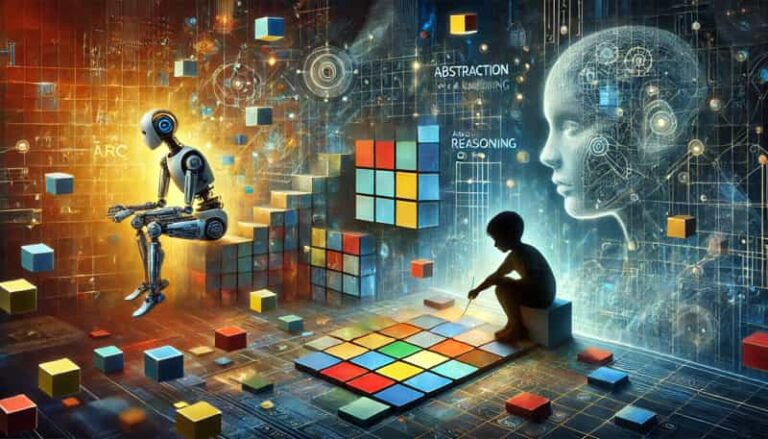
TheARC (Abstraction and Reasoning Corpus) is not just a test. It is an enigma designed to strike at the heart of what we call intelligence. Created by researcher François Chollet (the same author of Keras), the ARC is designed not to test the computational ability of AIs, but their ability in abstract reasoning, just as a human would.
Operation is simple only on the surface: each task shows a few colored grids with a logical transformation underneath. The goal? Figure out the rule and apply it to a new input. Humans, even children, can deduce the solution in a few examples. AIs, no.
Average success of AIs: 31%.
Average success of humans: 80%.
Source: AI Google Blog
But why is it so important?
ARC does not reward memory or exposure to large datasets-the classic strengths of LLMs-but requires mental flexibility, intuition, and abstraction skills. Exactly what machines still lack. Simply put, real intelligence.
To better understand read from Arc Prize
The Google Research study confirms this: "Current language models fail to address ARC because they lack generalization and adaptability." It is not enough to recognize patterns or interpolate solutions from millions of examples. It is necessary to understand, to reduce to the essence, to intuit the invisible rule. The one that cannot be calculated, only seen.
And here an uncomfortable truth emerges: no matter how high-performing, LLMs are still blind to tasks that require human thinking. ARC represents the point where machines slow down and humans speed up.
It is a challenge that goes beyond AI. It is a test of humility.
It shows us that understanding the world is not just about data, but about meaning.
"Intelligence is not skill itself, but the ability to acquire new skills."
- François Chollet


A response